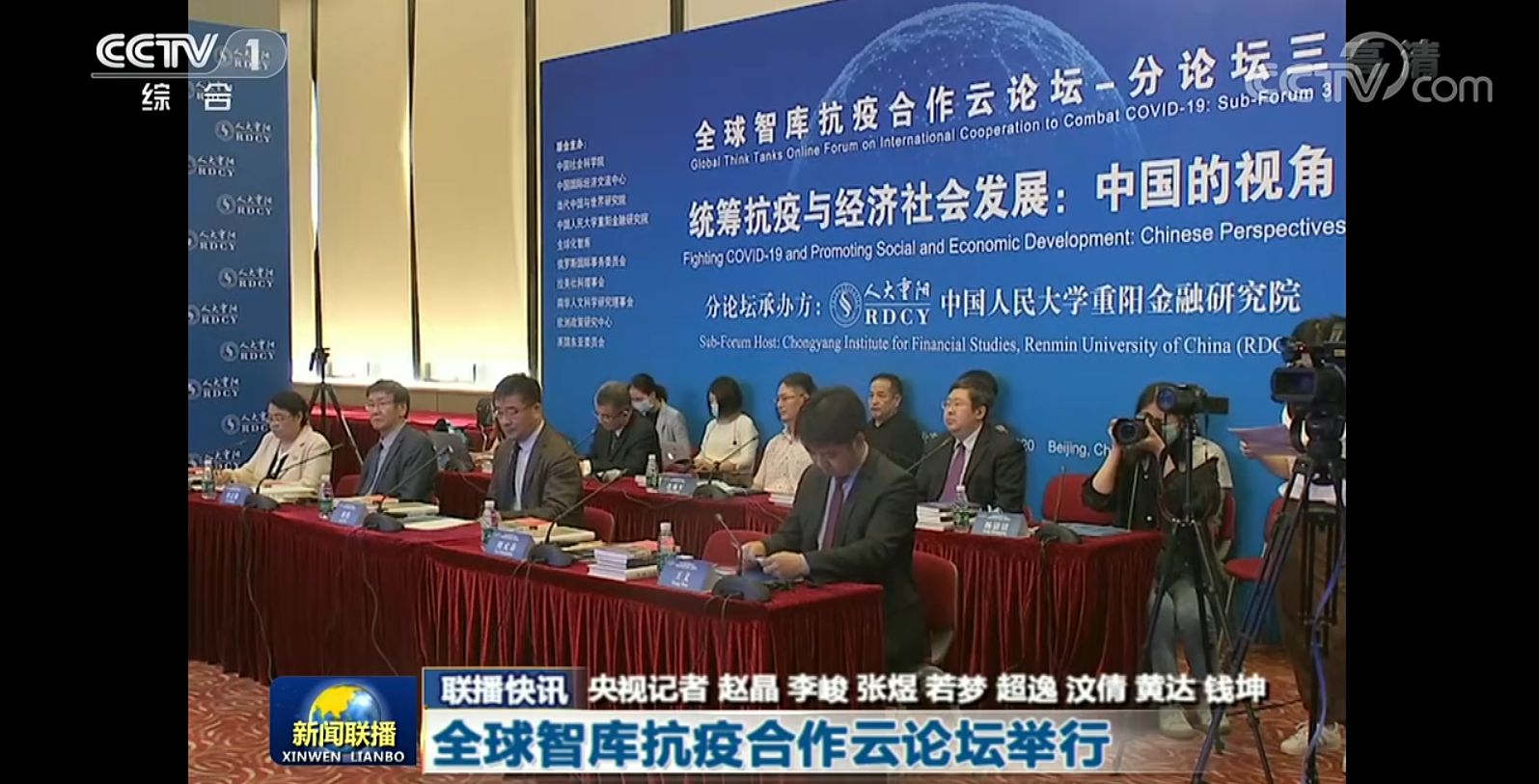Picture
Your Present Location: HOME> PictureA subforum of Global Think Tanks Forum on International Cooperation to Combat COVID-19 held at RDCY
Source: China Daily Published: 2020-6-11

CCTV reported the subforum of the Global Think Tanks Online Forum on International Cooperation to Combat COVID-19 focusing on social and economic development in Beijing on June 10, 2020.
Stronger economic policies and international cooperation will support the world's recovery from the pandemic, and China returning faster to normalcy could be a major stabilizer of the global economy, experts from home and abroad said at a forum on Wednesday.
A subforum of the Global Think Tanks Online Forum on International Cooperation to Combat COVID-19 was held on Wednesday, during which experts discussed issues promoting social and economic development, as well as sharing China's experiences fighting COVID-19.
"China's prevention and control work on the novel coronavirus has achieved significant results, and the overall situation has been effectively controlled, though some uncertainties still exist," said Liu Wei, president of Renmin University of China.
In the early stages of the outbreak, China took a series of strict measures, including shutting down production and schools, and tried to contain the spread of the virus, serving as the "first line of defense" in the global pandemic battle, Liu said at the forum held at the Chongyang Institute for Financial Studies at Renmin University.
Hit by the coronavirus pandemic, China's economy contracted in the first quarter by 6.8 percent compared to a year ago. Economic activity in the country has been normalizing gradually in the second quarter following the relaxation of lockdowns, according to analysts.
Branislav Djordjevic, director of Institute of International Politics and Economics in Belgrade, Serbia, said at the forum that China remains an engine of the international economy, and it is more than necessary to keep the Chinese economy stable.
The Chinese government has implemented monetary and fiscal policies to cushion the economic impact of the outbreak, including liquidity injections, tax relief, emergency health and welfare spending.
The latest forecast from the World Bank, which was released on Monday, indicated that China's growth is projected to decelerate from 6.1 percent in 2019 to 1 percent in 2020. Growth is expected to rebound in 2021, reaching 6.9 percent, partly reflecting a projected recovery in global demand.
"All governments in the world should continue to insist on promotion of economic and social development, providing necessary assistance to enterprises ... if necessary, special bonds should be issued in order to maintain production lines, but also to help the service sector as well," he said.
To handle the unprecedented COVID-19 crisis, an internationally orchestrated mechanism is needed for systemizing global cooperation. Such a system should be capable of fighting the current pandemic and stabilizing the world economy, Essam Sharaf, former prime minister of Egypt, said at the forum.
The Belt and Road Initiative-which strives to strengthen cooperation with neighboring countries on epidemic information sharing, the exchange of prevention and treatment technologies and the training of medical professionals-can be "a major vector" for health cooperation and enhancing global public health governance, Sharaf added.
Key Words: Think Tank forum; COVID-19; RDCY























































































 京公网安备 11010802037854号
京公网安备 11010802037854号





